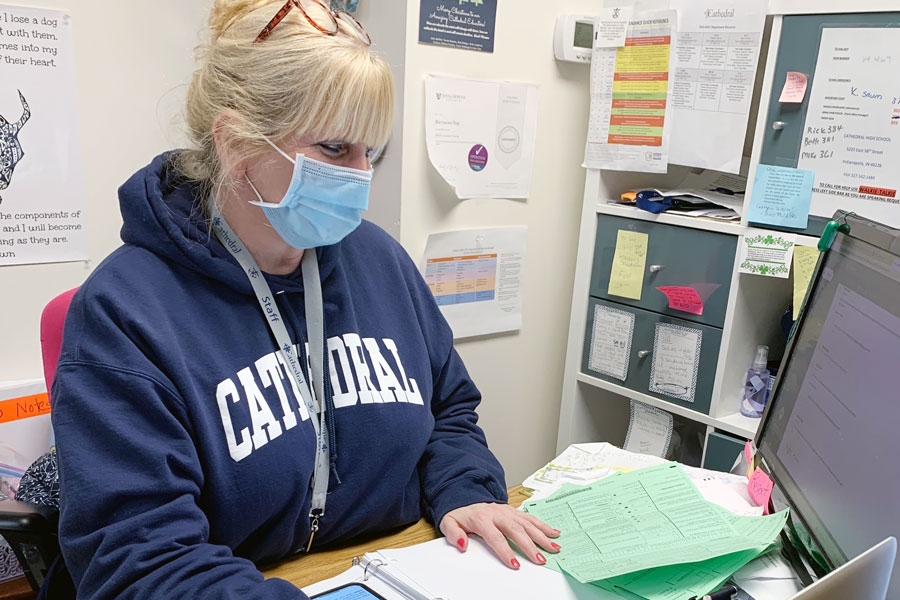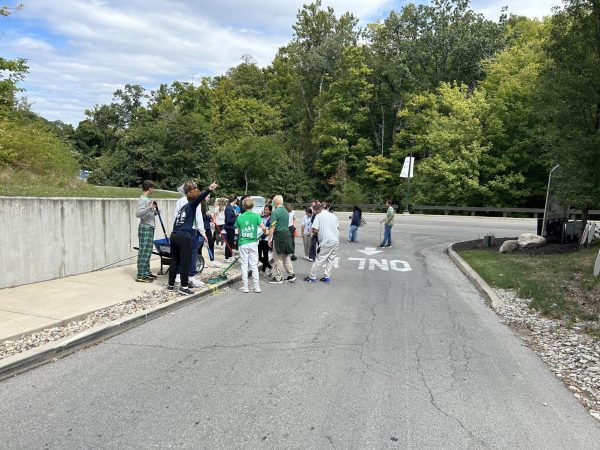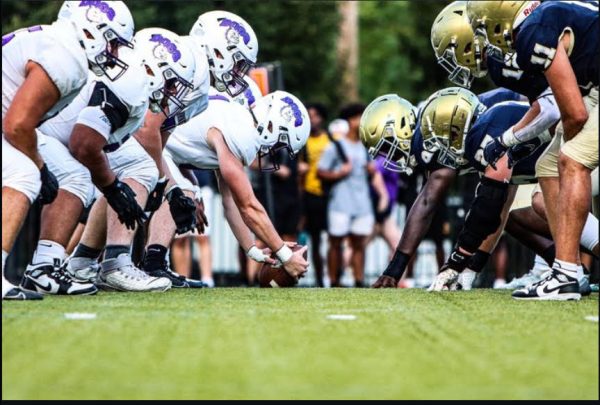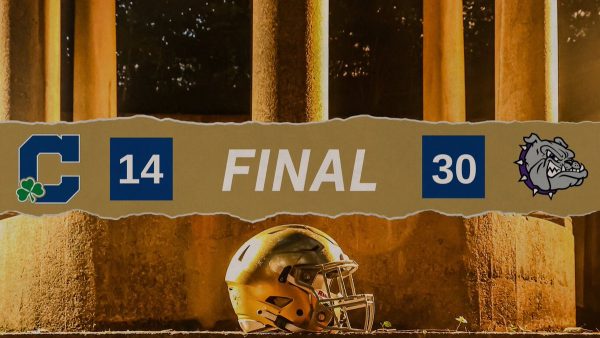Week following spring break to be virtual
Decision made for the safety of everyone on and off campus
School nurse Mrs. Marianne Vogt ’86 works in her office during E period on March 5.
The four days after spring break (March 29, March 30, March 31 and April 1) have been switched from in-person instruction to virtual learning. Classes will be taught online, but athletes will be allowed to be on campus for games and practices.
School nurse Mrs. Marianne Vogt ‘86, Principal Mrs. Julie Barthel and School President Dr. Rob Bridges, along with the Marion County Health Department, made the decision in order to ensure student safety, Vogt said.
Vogt provided insight on the matter, saying, “(Up until) when we had fall break, we were doing great as far as Covid cases. We (didn’t) have one outbreak in the school. Then we had fall break, and so many people went to Florida and places and went and stayed with their families. Then there was Halloween and I know there were a lot of parties, and all of a sudden we got that spread.”
Vogt added that there were many scenarios that the administration considered on how to handle the potential Covid-19 risks after spring break, but this switching to online instructor for four school days provided the best option. One possibility included testing everyone, but the group noted that it would not have been practical because anyone can test negative, but later test positive a few days after.
Students will be gone for a week for spring break, so then adding in an additional week of separation after the break will add up to two full weeks without contact, which is the CDC’s current recommended time span for quarantining.
“With Covid, two to five days after exposure is your most likely time (to test) positive. If we get through five days after that and you don’t have any symptoms, there are lower chances that you will, probably under 20% chance at that point. If you get to Day 7, it’s less than 12% chance that you will (get the virus). By Day 10 from the last time you were exposed, you have less than 5% of getting (Covid).”
She said that her biggest fear is that families will stay on vacation longer than the week-long spring break due to the additional week during which students don’t have to be on campus. Vogt wanted to emphasize that doesn’t mean students should extend their vacation. She said, “It is not meant to say ‘Let’s stay at grandma’s another week.’ That defeats the whole purpose.
“If we come back Saturday or Sunday and we get that full 10 days basically in — even eight or nine days is better than nothing — we have really good odds of being OK and not having a huge outbreak,” Vogt said.
The group who made the decision to conduct the week following spring break virtually also noted that students and staff would not have been on campus on Good Friday or Easter Monday. “It’s really only three (additional virtual) days because of Mission Monday,” Vogt said.
Ultimately Vogt, along with the other administrators involved in the decision, saw this as the best option to, as she said, “(Keep) everyone as safe as we possibly can.”
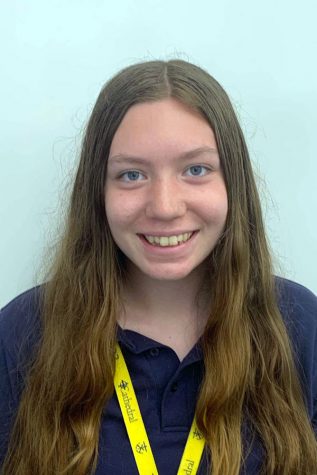
Ashlynn Bakemeyer is a senior and the co-editor-in-chief of the Megaphone. At Cathedral she is involved in the Best Buddies Club. Outside of school she...
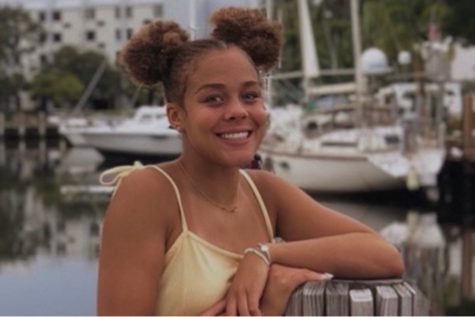
Ava Amos is a senior and is the co-editor-in-chief of the Megaphone staff. She is a member of the varsity softball team and enjoys volunteering with the...


